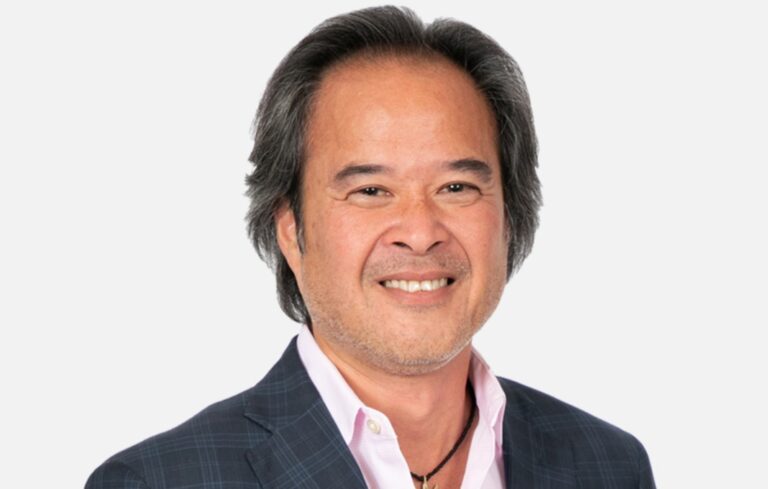The modern CFO is not just a “business enabler” but a more comprehensive “business partner.”
That's the message from Hai Tran, CFO of Denver-based billing and payment solutions company CSG. Mr. Tran spoke with his StrategicCFO360 about the keys to today's financial leadership, unlocking creativity, and how it all started.
Today's businesses must modernize their operations to remain competitive. How do you implement strategic organizational changes to meet customer needs while responding to market changes?
To effectively transform your organization and meet your customers' current needs, you need to start with data. Digital transformation will impact every part of your business, but it won't happen overnight. It's a process that starts with raw data and moves to structured reporting and analysis. This ultimately leads to objective insights that can be used to support decision-making across the business.
Given the dynamic and rapidly changing nature of customer requirements, it's important to stay on top of ever-changing and ever-growing amounts of data. Knowing the customer should be the starting point rather than the end goal, as a comprehensive 360 degree understanding of the customer is essential.
By taking this customer-centric approach and combining it with data-driven decision-making, you can not only address existing needs today, but also anticipate future needs. That means making the most of your data to drive true strategic relationships with your customers.
How do you address the challenges many CFOs are currently experiencing: managing finances and managing shareholder expectations while enabling the company to evolve at the pace of innovation?
In my experience, having a clear vision is key to balancing financial management and innovation. Know where you want to be a part of it and don't be shy about championing the cause so everyone can buy into the journey. Incremental change does not lead to total transformation. We need to be willing to think bigger and consistently communicate the value and opportunity at stake for everyone.
The importance of data applies here as well, as quantitative transparency and financial impact metrics can quickly unleash pent-up creativity. This empowers everyone in your organization to achieve greater results and allows you to have a framework for prioritizing projects and, in turn, allocating capital.
It all comes down to CSG's belief in the power of all. Building towards a shared vision that helps create a better, more future-ready world if we believe in the same mission and see a path forward to greater things, not only for our business but also for our customers and communities. I can. .
Culture, belonging, and purpose: How are you working to connect with employees around the world outside of your CFO role?
For too long, CFOs have been business enablers, people who look at the numbers and oversee spending and data delivery, but sit on the sidelines when it comes to decision-making. This outdated approach limits the ability of CFOs and their teams to take greater ownership in guiding the business, connecting people, and influencing outcomes.
Instead, the finance team needs to become a business partner. As a partner, you're not just a “taker” of the analysis; you're with the team every step of the way. Enablers sit at the “kid's table” where they are not responsible for their decisions and therefore not responsible for winning or losing. Teams can be more engaged by being accountable and looking directly at the vision. This connects to my earlier point about focusing on larger company goals that have an impact beyond the business.
This starts with empowering your employees. Encourage your team to take risks. Give individuals a safe space to speak up. We foster a culture where diverse opinions are given equal importance. Ultimately, the focus needs to be on strategy, culture and processes, with financial results following.
There is a poem by Saxon White Kessinger called “The Indispensable Man,” which reads in part: It's a measure of how lonely you will be. ” I think of this poem often because my goal as a CFO is that when I pull out my “fist,” I want it to make a little bit of a ripple. What matters to me is how many great future leaders I can mentor, develop, and help them do great things in the world.
People, purpose, and ESG are closely linked, so what advice would you give to CFOs looking to align growth and profitability with social responsibility?
First and foremost, be intentional. Don't try to boil the ocean. Real change doesn't happen quickly. Rather than trying to do everything you think you need to do, choose what makes the most sense for your organization's culture and focus on what will have the biggest impact.
Then, be patient in dealing with the problem. Problems related to inequality cannot be solved all at once. Design a multi-year initiative with clear goals and sufficient time to demonstrate impact. The pace of progress should match the program's long-term goals and the organization's ability to absorb change, so consider measuring it in years rather than quarters.
Addressing ESG requires continuous improvement and the recognition that you are dealing with real people, not just metrics. So consider broadening your definition of diversity to include diverse ideas, experiences, and perspectives. Ideas are what determine performance. If you have leadership with ideas and a willingness to take risks, the metrics will come in time.

